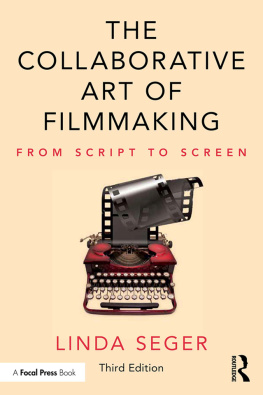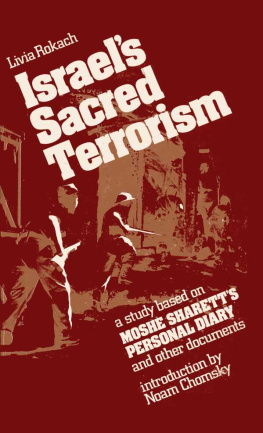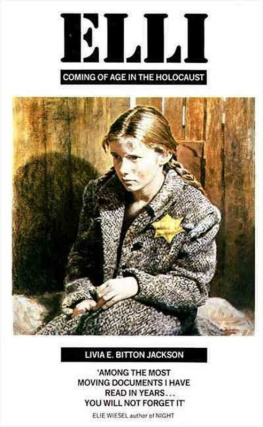PERFORMING LATIN AMERICAN AND CARIBBEAN IDENTITIES
Kathryn Bishop-Sanchez, University of Wisconsin, Madison
Series editor
This series is a forum for scholarship that recognizes the critical role of performance in social, cultural, and political life. Geographically focused on the Caribbean and Latin America (including Latinidad in the United States) but wide-ranging in thematic scope, the series highlights how understandings of desire, gender, sexuality, race, the postcolonial, human rights, and citizenship, among other issues, have been explored and continue to evolve. Books in the series will examine performances by a variety of actors with under-represented and marginalized peoples getting particular (though not exclusive) focus. Studies of spectators or audiences are equally welcome as those of actorswhether literally performers or others whose behaviors can be interpreted that way. In order to create a rich dialogue, the series will include a variety of disciplinary approaches and methods as well as studies of diverse media, genres, and time periods.
Performing Latin American and Caribbean Identities is designed to appeal to scholars and students of these geographic regions who recognize that through the lens of performance (or what may alternatively be described as spectacle, ceremony, or collective ritual, among other descriptors) we can better understand pressing societal issues.
2019 by Vanderbilt University Press
Nashville, Tennessee 37235
All rights reserved
First printing 2019
This book is printed on acid-free paper.
Manufactured in the United States of America
Library of Congress Cataloging-in-Publication Data on file
LC control number 2018013995
LC classification number HN120.A8 S76 2018
Dewey classification number 303.48/4097273dc23
LC record available at lccn.loc.gov/2018013995
ISBN 978-0-8265-2223-8 (hardcover)
ISBN 978-0-8265-2224-5 (paperback)
ISBN 978-0-8265-2225-2 (e-book)
ACKNOWLEDGMENTS
In 2009, I had the opportunity to chat with Sergio Beltrn of Universidad de la Tierra (University of the Earth/Land), Oaxaca, an educational collective strongly committed to social justice. I asked him, as I asked nearly everyone I was speaking with in those days, what he thought my responsibility was in representing Mexican social movements. He told me to remember always that this book was from the perspective of an outsider and a foreigner, and the book is necessarily enmeshed in a long history of colonial appropriation and looting of indigenous peoples. Not long afterward, I asked the same question of an activist who replied quite sharply, Just remember that this book isnt about you. When asked the same question, most people in Atenco, almost without exception, told me to do my job and represent people and the situation as honestly and truthfully as I can. This book, as a physical object and a representation of Mexico and the Frente de Pueblos en Defensa de la Tierra, is as deeply imbricated in the ethical and political regimes that it describes as any film. One of the greatest struggles in writing it has been to triangulate its politics of representation and critical analysis among the same issues of protagonismo and solidarity that I describe filmmakers struggling with.
The first debt of gratitude that I owe is to the filmmakers and members of Frente who kindly and generously supported the research and taught me what they knew. I owe a special debt to the man I refer to as Humberto for always pushing me forward (sometimes literally) and arranging for me to live in Atenco. The woman I call Doa Mara was my landlady, mother, and closest friend while in Atenco. I cannot thank her and her family enough for hosting, advising, and caring for me. I also owe special gratitude to the man I refer to as Virgilio for spending so much time guiding and informing this work. The ideas presented here are more those of Humberto, Doa Mara, Virgilio, Mario Viveros Barragn, Jos Luis Mario, Salvador Daz, and Odette Castelao than they are my own. I often feel that to present them here as my own is an unforgivable act of protagonismo and appropriation. I am keenly aware that to list my name after a title with Atenco in it is to in some way benefit personally from the notoriety of the Frente. In the end, I put my name on this book not to claim it as my own, but to accept responsibility for where it may be lacking. I owe special gratitude to Ignacio del Valle, for although he was held prisoner for the majority of the time during the active research for this book, his ideas and presence were no weaker for his physical absence.
The research for this book began as my graduate research at Washington University in St. Louis, and there are many people there whose ideas and suggestions pushed and influenced the project. I owe a deep debt of gratitude to the encouragement, ideas, and political example of my friend and colleague Bret Gustafson. The suggestions and advice of Rebecca Lester, Patrick Eisenlohr, Derek Pardue, Mary Ann Dzuback, Ignacio Snchez Prado, Peter Benson, and Glenn Stone helped form the basis of this research from its earliest days. So did the advice, thoughts, and deep engagement of Katie Hejtmanek, Lisa Isenhart, Meghan Ference, Anubha Sood, Sean Gyshen Fennell, and Elyse Singer.
Funding for this research was provided by a dissertation grant from the Wenner-Gren Foundation and from the (no longer existing) Center for the Study of Ethics and Human Values in St. Louis. Grants from the Graduate School of Arts and Sciences at Washington University in St. Louis also funded early research. Grants supporting faculty research at Illinois State University funded return trips to Mexico in the last several years. Although they dont know it, funding for writing a significant portion of this book was provided by a Fulbright IIE grant held by my wife, Abigail C. Stone, to support her archaeological research in Mali. Although support for same-sex partners was not legal at the time, Fulbrights generosity and our own economy enabled a great number of these pages to be written at the Djenn-Djenno hotel caf in Jenn, Mali, a place and time that provided more space, peace, clarity, tea, and lack of Internet than most have the privilege of while writing.
The book would not exist without the interest, engagement, and suggestions of Beth Kressel Itkin at Vanderbilt University Press and Kathryn Bishop-Sanchez. I am also deeply grateful for the ideas and challenges posed by a number of colleagues, named and anonymous, who have provided feedback on portions of this manuscript over the years, including versions of chapters presented at conferences. Jeff Juris, Maple Razsa, and Erica Cusi Wortham have all helped to push the project forward. Several colleagues at Colby College and Illinois State University also gave valuable feedback: Ryan Jones, Michael Dougherty, and Gina Hunter. I owe a special debt to Fred Smith and James Skibo and all my colleagues in the Department of Sociology and Anthropology at ISU for providing such a welcoming and supportive environment for teaching, scholarship, and service. Although you may not consider it so, your commitment to educating all people while living skillfully and healthily is a radical practice, and I thank you for your example. Research for this book truly began in the late 1990s with my friendship with Alejandro Ramos Amzquita and his family. Since I was a teenager, Ana Mara, Alejandro, Sandra, and Sergio have generously invited me into their homes to stay for extended periods of time. Ana Mara especially provided my home away from home and valuable motherly advice over the course of many years. Ana Mara, this project began as conversations over your kitchen table in Mexico City and is deeply indebted to your patience, support, and compassion. Thanks also to my family, Gary, Katy, and Jeremy Hinegardner, for supporting me and asking the most difficult questions about this research. My wife, Abigail C. Stone, also worked hard crafting this book, not just proofreading sentences, rearranging paragraphs, and challenging ideas, but also through her advice and support. Our son, Paul, has provided a depth of joy and the perspective needed in the last stages of writing. The greatest acknowledgement, of course, is that this book isnt about me, and it (probably) isnt about you either, even though you and I and everyone in this book are connected through a responsibility to create this world that we share.












